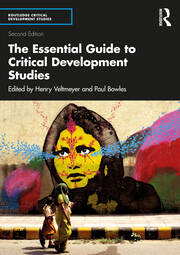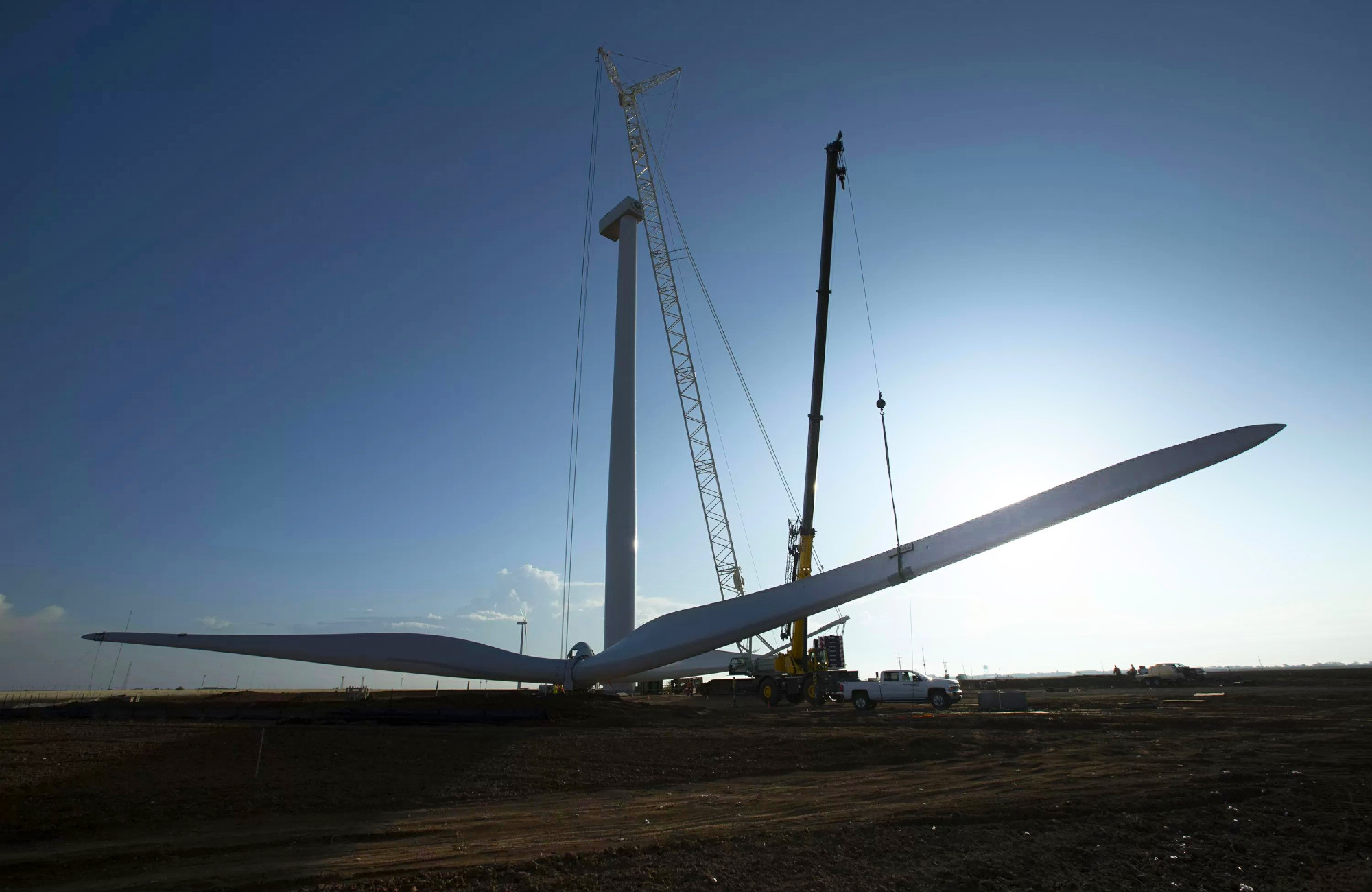- Buy here from Routledge (£39.99)
- Scholarly access here from Taylor and Francis

Neoliberal globalisation has coincided with a dramatic acceleration of the exploitation of nature – through large-scale agriculture, fisheries, logging, mining, and fossil fuel extraction. The increased demand for food and manufactured goods, accelerated by continued Chinese economic growth, has been an important factor in this commodity boom. But it does not explain it completely.
The recurrent problems of over-accumulation in the global economy, made worse since the 2007– 2008 financial crisis, have turned natural resources into refuge investments for capital, boosting the price of commodities to an all-time high until the mid-2010s. The general picture has been one of a global commodity boom that has accelerated oil and gas exploration, mining, and large-scale agribusiness, notably in sugarcane, soybean, and palm oil. No developing country has been able or willing to refuse economic benefits from this growth of extractive industries.
Despite rhetoric about sustainable development, few have been preoccupied with balancing out economic growth and environmental sustainability. And, despite the rhetoric, few have respected the rights of local populations whose livelihood and cultures rely on nature. Not one developing country that provides raw resources in the global economy has been able to use this boom to add value to their exports and move into processing and manufacturing. Most of the technology used by extractive industries in agriculture, mining, oil, and gas extraction is designed, developed, and manufactured in core capitalist countries or in China, reinforcing a very traditional international division of labour – albeit one in which China is now playing an increasingly pivotal role.
The renewed importance of extractivism to global economic growth means that capitalism in its neoliberal phase increasingly both relies on the appropriation of non-human nature for the accumulation of capital, and exacerbates the fundamental contradictions of capitalist development. Extractive industries are today capital-intensive and labour saving, destroying the very nature that they rely on at an ever-accelerating rate. Their use and containment of water to do so worsens severe inequalities with water supplies.
Although the profits of extractive industries rely on conventional mechanisms, i.e., expanding production and increasing productivity, capturing rents remains a fundamental tactic in the wealth accumulation strategy of several actors connected to this sector. Ground rent is the term used to refer to the fee industries must pay to landowners where extraction is carried out, be it a private landowner or a nation–state. The most well- known ground rents in the global economy are the royalties that oil and mining companies pay to countries in exchange for access to their natural resources.
The term ‘rent’ is also used to refer to the surplus profit that accrues to companies that have a monopoly position in a market, particularly when this monopoly is guaranteed by the state. Gaining access to the rent that the state extracts from mining and energy companies is an obvious rentier–wealth–accumulation strategy of state officials in resource-rich developing countries. But so are the constant efforts by private companies to gain access to state officials that grant monopoly rights, regulate the economy, provide subsidies or elaborate fiscal policies.
The current energy transition is inextricably linked to extractivism in a myriad of ways, and the development of renewable energy projects often mirrors the dynamics and processes characteristic of extractive industries.
Continued oil extraction
All these extractive industries require large amounts of energy in their production and circulation cycle and thus require continuous sources of cheap and reliable energy for their development. In many oil-producing developing countries, like Angola, Ecuador, Nigeria, Venezuela, and the Gulf states, this has meant that oil extraction has continued to increase, despite the climate emergency. In many less-developed countries, especially when new offshore oil reserves have been found, very few economic benefits have accrued to the local economy or population, because oil companies tend to create enclaves that are not linked to the region where they set up their activities.
‘Green' extraction practices are linked to older ones
Renewable energy projects share many of the characteristics of extractive industries. Because of the image propagated by mainstream media about renewable energy, the industry’s activities and modus operandi are rarely scrutinised. But renewable energy industries are not as clean, green, or sustainable as one would think, especially in the world of biofuels.
Sugarcane, maize, or palm oil, from which the main agrofuels are made, require very large amounts of land, are grown with significant amounts of chemical inputs, are farmed on monocrop plantations, and generally use fossil fuel technology for planting, harvesting and transportation. Because of their reliance on fossil fuel technologies, the ecological footprints of the whole lifecycle of sugarcane and corn ethanol are substantial and do not outweigh their reduction of CO2 as a replacement fuel to petroleum oil.
In many regions of the developing world agrofuels have been associated with land grabs, population displacements, poor working conditions, and marginalisation or the adverse incorporation of small-scale producers. This makes them a very uneconomical, as well as socially and environmentally unjust, way of addressing climate change. But the problem is not restricted only to biofuels and agrofuels. In certain developing countries, some solar energy parks and wind farms have generated similar problematic outcomes.
Two types of technologies are largely used to produce solar energy: photovoltaic (PV) and concentrated solar power (CSP). The former mainly uses solar panels to capture sunlight and transform it into electricity, while the latter uses lenses, mirrors, or parabolic troughs and dishes to focus sunlight and heat a fluid that is, in turn, used to generate and store electricity.
Small-scale PV off-grid technology and initiatives, typically on domestic rooftops, have not been the ones that have been attracting large investment in the Global South. Instead, solar energy initiatives have taken the form of large-scale solar PV farms or CSP parks that require substantial tracts of land ranging from several hundred to a few thousand hectares. In some cases, like in India, just as agrofuel projects do, solar energy companies claim that the land where they set up their park is degraded or inhabited, even though it is important for the livelihood of the local population.
‘Electrify everything’ means more mining
The energy transition towards renewables relies on extractive industries, especially mining, for very crucial components of the devices used to produce electricity. Solar PV panels and cells require copper, palladium, titanium dioxide, aluminium, sand or quartz, and zinc. Turbines require steel, iron, copper, aluminium, copper, manganese, nickel, zinc, rare earth elements for magnets and batteries, and cobalt for magnets. Copper, rare-earth elements, and cobalt, which are also crucial for digital technology, are required in large amounts for electric vehicles. This is already triggering geostrategic planning among core capitalist countries and makes resistance to mining even more difficult for local marginalised or racialised populations, despite the existence of numerous international covenants that should protect their rights.
The mining of the mineral inputs required by the energy transition is increasingly carried out in open-pits with large-scale machinery. This does require less labour than in the past, but dramatically increases environmental damages, such as tonnes of waste, air pollution, and water contamination due to the use of hazardous chemicals like cyanide and mercury. Complete territories and their population are being sacrificed for the global energy transition.
No sustainable development without self-determination
A major claim of this article is that, while commodity extraction has boomed under neoliberal globalisation, it has not contributed much to development in the Global South. As part of the structural adjustment programmes of the 1990s, many developing countries had to reform their mining codes in to create ‘competitive’ investment environments, reducing royalties and taxes, and easing environmental regulations. This has allowed a powerful minority, with access to the state, to capture the rents from these activities while the local ecosystems and populations have borne the costs.
If we want to embark on a socially just and environmentally sustainable energy transition, the global architecture of inter-state relations, as well as national political regimes, will require fundamental democratic reforms and struggles. Only under these circumstances will local populations be able to exercise the right to self-determination and genuinely determine whether renewable energy or mining projects respect their way of life and align with their collective vision of what development ought to be.
This article consists of edited excerpts from Dr Vergara-Camus’ chapter in The Essential Guide to Critical Development Studies, edited by Henry Veltmeyer and Paul Bowles.
Leandro Vergara-Camus is a political scientist and currently Professor and Head of Study at Université de l’Ontario Français, Canada. Find his ResearchGate profile here.
Read more:

- Opinion
- By Patrick Moriarty
- 14 July, 2023






